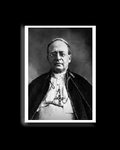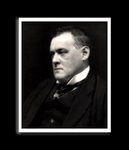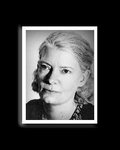by John Médaille
Some wag somewhere has remarked that economists suffer from “physics envy.” One could certainly make that charge against W. S. Jevons (1835-1882), one of the founders of marginal economics, when he wrote that a “perfect system of statistics … is the only … obstacle in the way of making economics an exact science”; once the statistics have been gathered, the generalization of laws from them “will render economics a science as exact as many of the physical sciences.1 More than a century has passed since Jevons wrote these words, and in that time there has been a growth of vast bureaucracies, both public and private, devoted to establishing this “perfect system” of statistics. Yet today economics seems no closer to being an exact science than it was in Jevons’ day. Despite this failure, economic orthodoxy clings to the notion of itself as a positive science. As Milton Friedman puts it:
Positive economics is in principle independent of any particular ethical position or normative judgments. As [J. N.] Keynes says, it deals with “what is,” not with “what ought to be.” Its task is to provide a system of generalizations that can be used to make correct predictions about the consequences of any change in circumstances. Its performance is to be judged by the precision, scope, and conformity with experience of the predictions it yields. In short, positive economics is, or can be, an “objective” science, in precisely the same sense as any of the physical sciences.2
Friedman makes predictive success the criteria for judging a positive economics, yet such success is doubtful, despite the fact that we have access not only to vast amounts of statistics, but to computing power unimaginable in Jevons’ day. Yet the models, worked out in great precision and computed on engines of vast power, seem to lack any predictive reliability whatsoever.3 Nevertheless, economists are (as Lev Landau said of cosmologists) “frequently in error but never in doubt.”
In light of these failures, can we ask if economics really is a positive science? Let me suggest that the question is meaningless. Every science, insofar as it really is a science, is both positive and normative. Every science, insofar as it is a science, must be “normalized” to some criteria of truth. These truths will arise from two sources: an internal and an external source. The internal criteria involve a science’s proper subject matter and methodology. But these criteria are insufficient to found any science as a science. In addition, there must be external criteria of truth, and these truths can only come from one or more higher sciences. In the absence of such an external check, the science will merely be circular, dependent on nothing but itself and unconnected with the hierarchy of truth. Thus, for example, biology is responsible to chemistry, chemistry to physics, physics to mathematics. No biologist can violate the laws of chemistry, and no chemist can reach a conclusion contrary to physics. Thus every science is responsible to its own methodology (and therefore “positive”) and to the higher sciences (and therefore “normative”). Every science has, therefore, both its own proper autonomy, based on its subject matter and methodology, and its own proper connection to the near sciences, based on the hierarchy of truth. In speaking of the autonomy of a science, we should note that it is only a relative autonomy, not an absolute one. A scientist’s obligation to be faithful to his proper method does not relieve him of the obligation to higher truths.
No science can provide its own criteria entirely without being merely circular. When a science attempts to do so, one of two things happens. The first possibility is that the science breaks up into mutually warring camps whose disputes can never be resolved because there are no accepted criteria of truth by which to resolve them. The second possibility is that the science becomes merely dogmatic, and no rational examination of its premises is permitted. In economics, both things have happened; the science is divided into warring factions with no arbiter of truth among them; the principles of the various factions often become dogmatic statements with little connection to reality.
It is necessary, then, to determine what the “higher sciences” are for economics. Now, the physical sciences terminate in physics, but the humane sciences terminate in some view of anthropology derived ultimately from philosophy and theology. Therefore, some theology must be the ultimate source of truth for economics with some intermediate stops at psychology and sociology. It would seem to be self-evident that a complete view of man would involve theology, philosophy, sociology, and psychology, yet this view is not at all universally (or even generally) accepted by economists. How is it possible that a humane science can cut itself off from these indispensable sources of knowledge about humans? The answer lies in the fact that neoclassical economists accept as a purely economic truth that which is, in fact, a purely philosophic stance, namely that of Jeremy Bentham’s utilitarianism. The purest expression of this is in Ludwig von Mises’s tome, Human Action. The very subtitle (“A Treatise on Economics”) gives the game away; he claims that his thesis is not, as it appears to be, a philosophic one, but a purely economic one. Mises states that his theory has the same epistemological status as do logic and mathematics, asserting that it is “unconditionally valid for all beings endowed with the logical structure of the human mind.”4 But surely, quite logical people have found logical grounds for questioning his “praxeology”; it is not an intuitively obvious principle that all scientists, indeed, all persons, must accept. Here we see a purely philosophic stance becoming an economic dogma, placed beyond testing or question, and hence unscientific. Nor is the problem confined to the Austrians, for what Mises does explicitly, Friedman does implicitly. And in either case, “science” is cut off from the very roots, the very connection with the higher sciences that could make it a legitimate science rather than a warring set of ideologies.
Cut off from these roots, economics cannot answer the question of distributive justice. Or rather, it cannot test the theories of distributive justice offered by the higher sciences. Instead, thinking itself complete in itself, it will engage in battles that have no possible resolution, because they are not really economic battles but philosophic ones. But more importantly, it cannot even answer the question of corrective justice, of justice in exchange. It cannot possibly show whether its distributive equation, marginal productivity, actually marginalizes productivity or merely power.
1 Quoted in James E. Alvey, "A Short History of Economics as a Moral Science," Journal of Markets and Morality 2, no. 1 (Spring, 1999): 62.
2 Milton Friedman, Essays in Positive Economics (Chicago: University of Chicago Press, 1953), 4.
3 Paul Ormerod, The Death of Economics (New York: John Wiley & Sons, Inc., 1994), 120-7.
4 Ludwig von Mises, Human Action: A Treatise on Economics, 4th Revised ed. (San Francisco: Fox & Wilkes, 1963), 57.
















1 comment:
This is a very interesting point that you make about the differences in scientific knowledge. In a sense not all knowledge is equal. Mere statistics may be useful tools but if one founds philosophic assumptions upon them then it becomes a game of 'Whose statistical program best fits my own interest'. It seems plainly evident to me that the chief failure of Marxism lays in its inability to explain the human person. If the 19th century philosophers sought to invert classical philosophy, they certainly inverted the human person. That our actions are our primary purpose and function completely ignores human reality. (It also, amusingly enough, makes a mockery out of itself, for it takes self-reflection to make such a determination). Ultimately it justifies might over right. If action is the end of human life, then ipso facto anything that gets in the way of action (or auto-creation, self-fabrication) must be morally reprehensible. (Opposing abortion for example, or sodomy).
Subject specialisation in the sciences may have its uses, but every scientist would be better of with a course of philosophy and (horror of horrors) theology or metaphysics. Otherwise, as you say, the science becomes a self justifying, circular discipline with no guiding principle other than its own self-justification.
Hurrah for sanity!!!!
Post a Comment